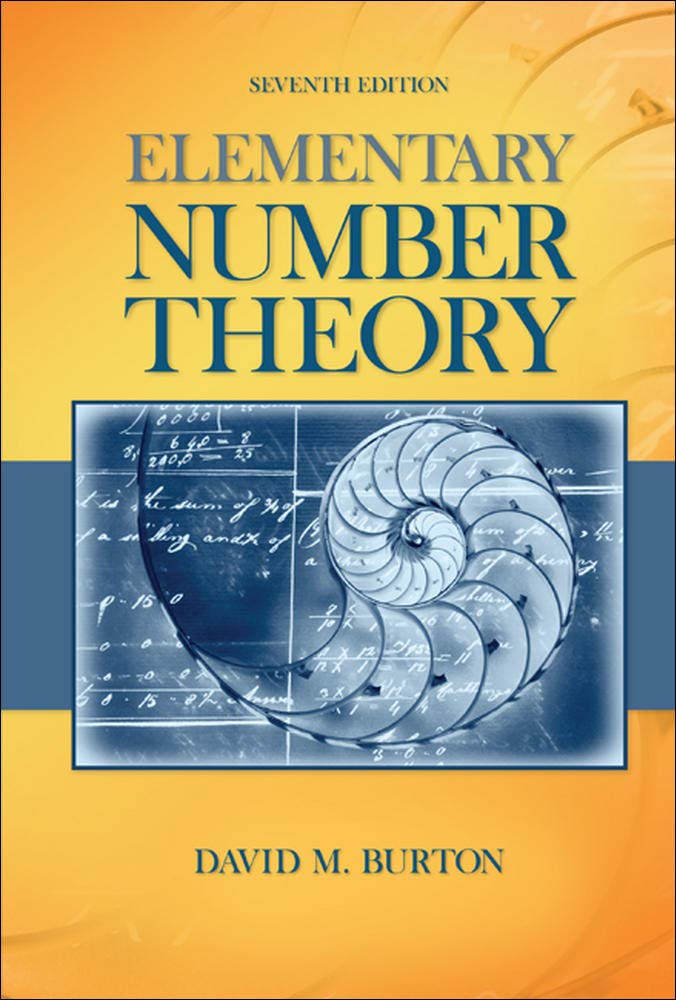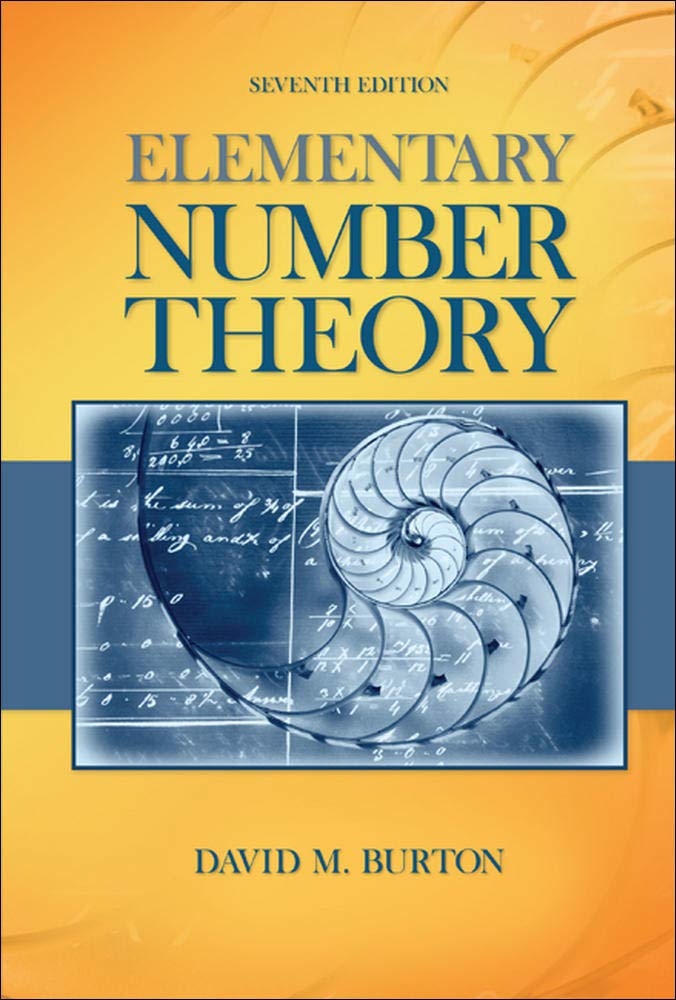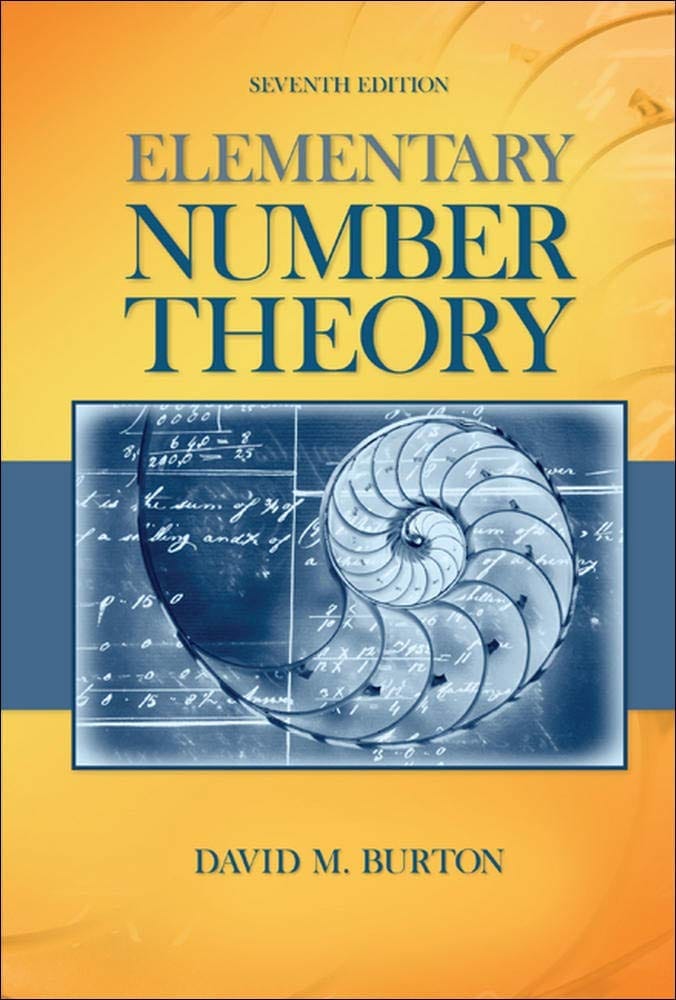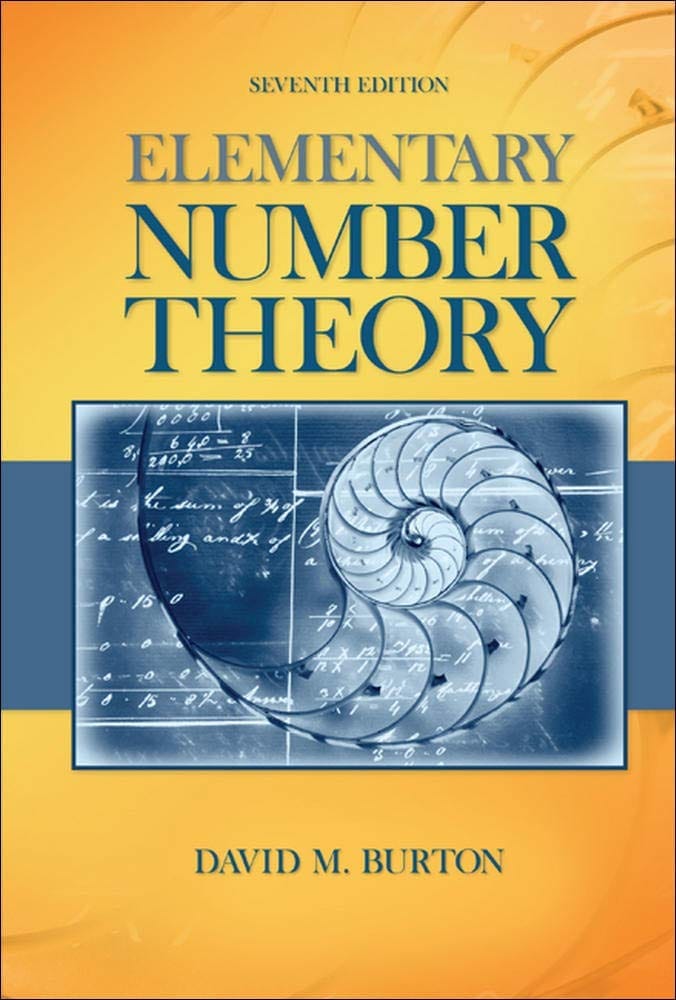
Elementary Number Theory Problems 3.3 Solution (David M. Burton's 7th Edition) - Q21
My Solution for "(a) For any integer $k > 0$, establish that the arithmetic progression $$a + b, a + 2b, a + 3b, ...$$ where $gcd(a, b) = 1$, contains $k$ consecutive terms that are composite. [Hint: Put $n =(a+ b)(a + 2b) \cdots (a+ kb)$ and consider the $k$ terms $a+ (n + 1)b, a+ (n + 2)b, ..."
Table of Contents
Background
All theorems, corollaries, and definitions listed in the book's order:

I will only use theorems or facts that are proved before this question. So you will not see that I quote theorems or facts from the later chapters.
Question
(a) For any integer $k > 0$, establish that the arithmetic progression $$a + b, a + 2b, a + 3b, ...$$ where $gcd(a, b) = 1$, contains $k$ consecutive terms that are composite.
[Hint: Put $n =(a+ b)(a + 2b) \cdots (a+ kb)$ and consider the $k$ terms $a+ (n + 1)b, a+ (n + 2)b, ... , a+ (n + k)b$.]
(b) Find five consecutive composite terms in the arithmetic progression $$6, 11, 16,21,26,31,36, ...$$
Solution
(a)
Let $i$ be an integer where $i \in {1, 2, 3, .... k}$.
Put $n =(a + b)(a + 2b) \cdots (a+ kb)$ and let us consider the $k$ terms $a + (n + 1)b, a + (n + 2)b, ... , a + (n + k)b$.
For any $a + (n + i)b$ term:
$$ \begin{equation} \begin{split} a + (n + i)b & = a + [(a + b)(a + 2b) \cdots (a+ kb) + i]b \\ & = a + ib + (a + b)(a + 2b) \cdots (a+ kb)b \\ & = (a + ib) + (a + b) \cdots (a + (i - 1)b)(a + ib)(a + (i + 1)b) \cdots (a+ kb)b \\ & = (a + ib)[1 + (a + b) \cdots (a + (i - 1)b)(a + (i + 1)b) \cdots (a+ kb)b] \end{split} \nonumber \end{equation} $$Therefore, every $(a + (n + i)b)$ term is divisible by $(a + ib)$, and they are $k$ consecutive terms. So, the arithmetic progression contains $k$ consecutive terms that are composite.
(b)
The arithmetic progression is the form $a + mb$ where $a = 1$ and $b = 5$ with $m \in Z^{+}$.
From part (a), we have $n = (6)(11)(16)(21)(26) = 576576$. The terms are:
$1 + (576576 + 1)(5) = 2882886 = (1 + 5 \times 1)(480481)$
$1 + (576576 + 2)(5) = 2882891 = (1 + 5 \times 2)(262081)$
$1 + (576576 + 3)(5) = 2882896 = (1 + 5 \times 3)(180181)$
$1 + (576576 + 4)(5) = 2882901 = (1 + 5 \times 4)(137281)$
$1 + (576576 + 5)(5) = 2882906 = (1 + 5 \times 5)(110881)$
Read More: All My Solutions for This Book
Related Pages
Ranblog Newsletter
Join the newsletter to receive the latest updates in your inbox.


